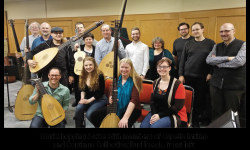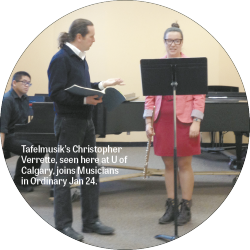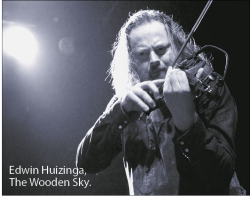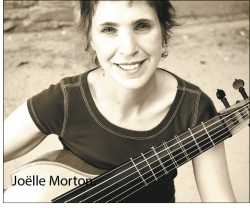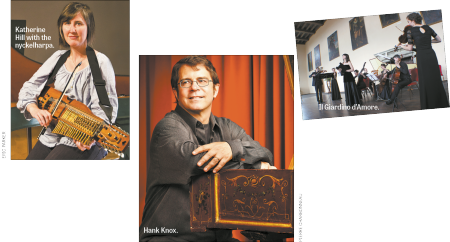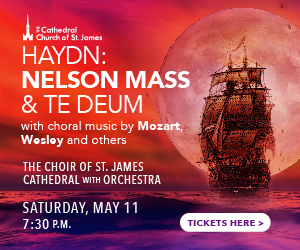Playlist Masters
The writer Nick Hornby is, to the members of Generation X and the millennials, the leading authority on the art of the mix tape, and in his novel High Fidelity, he defined the poetic frustration of creating a playlist for someone, now rendered irrelevant in our current era of iTunes playlists and YouTube channels: “To me, making a tape is like writing a letter— there’s a lot of erasing and rethinking and starting again. A good compilation tape, like breaking up, is hard to do. You’ve got to kick off with a corker, to hold the attention (I started with “Got to Get You Off My Mind,” but then realized that she might not get any further than track one, side one if I delivered what she wanted straightaway, so I buried it in the middle of side two), and then you’ve got to up it a notch, or cool it a notch...” Anyone who’s ever made a mix tape knows this feeling. There’s a sense of curatorial omnipotence that making a mix tape confers on its maker: I may not play in a band, I may not know how to write any songs, but damn it, I’ve got taste!
If you thought mix tapes were a generational flash in the pan, you’d be wrong. Long before the compact disc and cassette tape, music nerds were compiling playlists of their favourite songs and sharing them, except these geeks were either composers or performers of music and were perfectly capable of making music of their own. There’s a substantial amount of evidence that Brahms, Beethoven and Mendelssohn were passionate music collectors who wanted to share their discoveries, but one composer stands above all other connoisseurs and arbiters of good taste as an obsessive hoarder, cultural pack rat, and literal all-out, all-time violator of copyright – none other than Johann Sebastian Bach.
Bach’s reputation for near-autistic complexity and perfect detail as a contrapuntalist is well-known and I won’t bore you by repeating it here. Less appreciated, though, is the obsession he had with collecting music – either for personal consumption or to share with friends and colleagues. In the last 40 or so years of Bach scholarship, scholars have focused less on Bach the immortal master of counterpoint and more on Bach the music collector, virtually to the point where every composition and theme of Bach was thought to be originally written by another composer or else was derivative of some other style of music. It’s gotten a bit out of hand, and there isn’t a whole lot of direct cause and effect linking Bach’s musical taste with what he composed.
Bach’s St. Mark’s Mix: It’s for this reason that we are very fortunate to have actual evidence of a real playlist of songs that Bach collected, assembled into a concert program and had performed for a live audience. A particular version of the St. Mark Passion was one of a few concerts that Bach had performed while employed as the Thomaskantor in Leipzig; Bach not only thought highly enough of the music to have performed it three different times in his career, but reworked the concert order, cut arias and added new pieces by different composers, with just as much care (and possibly frustration) as Nick Hornby described as being part of the process of making a good mix tape. The final cut, completed just three years before he died, included songs by Handel (the leading composer of Bach’s day) and a composer lost to history but whom Bach evidently liked – known only as Kaiser.
The man responsible for bringing this mix of Bach’s to the Canadian concert stage is none other than Kenneth Hull, the director of the Spiritus Ensemble, and he will be leading a performance of the Bach compilation at St. John the Evangelist Anglican Church in Kitchener on March 30. When I ask him about some of the great composer’s favourites, Hull is able to provide me with some clues. “Up to now we’ve known very little of what Bach had actually performed besides his own music,” Hull explains. “We know for sure that J.S. Bach performed music by his second cousin, Johann Ludwig Bach, and music composed by his relatives. Bach came from a very musical family and he had inherited a lot of family connections to good composers.” Besides the advantage of promoting family members, Bach had to select composers that were easier than his own music for the musicians at his church to perform, and playing the “Kaiser” St. Mark Passion is certainly easier than playing Bach, Hull admits.
Hull is also quick to mention that he is in fact giving this Passion its Canadian premiere – and that this is just the second time this St. Mark is being performed in North America. “The Bach Society of Houston was able to obtain a copy of the St. Mark Passion because they are the sister city of Leipzig,” he says. “I’m fortunate enough to have a close connection with the Bach Society and was able to hear about this discovery.”
I Furiosi, Biber, Lent: If you aren’t interested in Bach’s favourite composers, or if you can’t make it to Kitchener for a concert, consider checking out a few Toronto-based ensembles instead. I Furiosi, still the best classical band you can hear for ten dollars (if you’re a student, senior or just plain broke), will be joined by organist Stephanie Martin and mezzo-soprano Vicki St. Pierre to perform Giovanni Battista’ Pergolesi’s Stabat Mater on March 22 at Windermere United Church. It will be well worth it to hear this work be performed by an ensemble that can play with verve, and well, fury.
This is your last chance to catch Chris Verrette and Musicians in Ordinary play Biber’s Mystery Sonatas on March 14 at St. Michael’s College’s Madden Hall. They’ll be playing the sonatas based on the Sorrowful Mysteries, so if you’re an observant Christian, this is an excellent program for Lent – if not, be prepared to hear something sad.
Speaking of Lent, on March 1 at Trinity-St. Paul’s Centre, the Toronto Consort will perform music leading up to the 40 days’ fast with a program devoted to the Venetian Carnival represented by Italian composers Monteverdi, Banchieri and Vecchi.
Finally, Tafelmusik has a couple of programs well worth hearing: Alison McKay’s audience favourite “The Four Seasons: A Cycle of the Sun,” featuring music by Antonio Vivaldi and Mychael Danna, at Trinity-St. Paul’s Centre on March 6 to 9, 11 and 12. Tafelmusik will be doing another program later in March –“A Night in Paris” – on March 27 to 30 also at Trinity-St. Paul’s Centre. This concert will feature superb music by Telemann and Leclair as well as Vivaldi’s violin concerto “Tempeste di Mare.”
David Podgorski is a Toronto-based harpsichordist, music teacher and a founding member of Rezonance. He can be contacted at
earlymusic@thewholenote.com.


